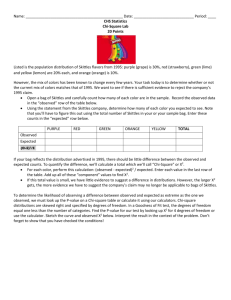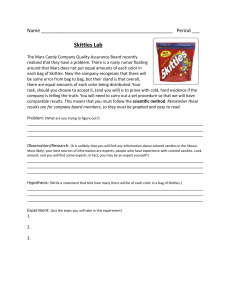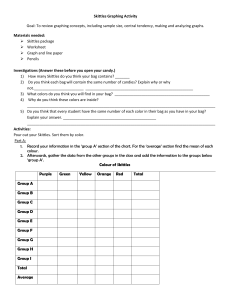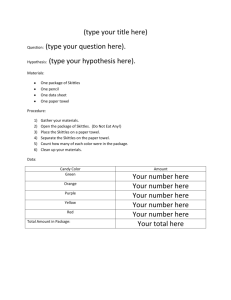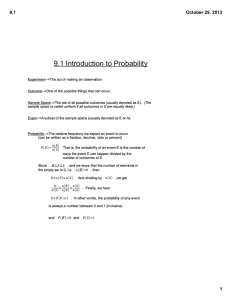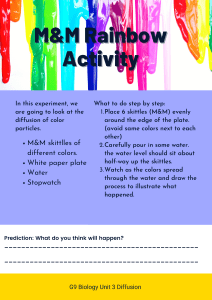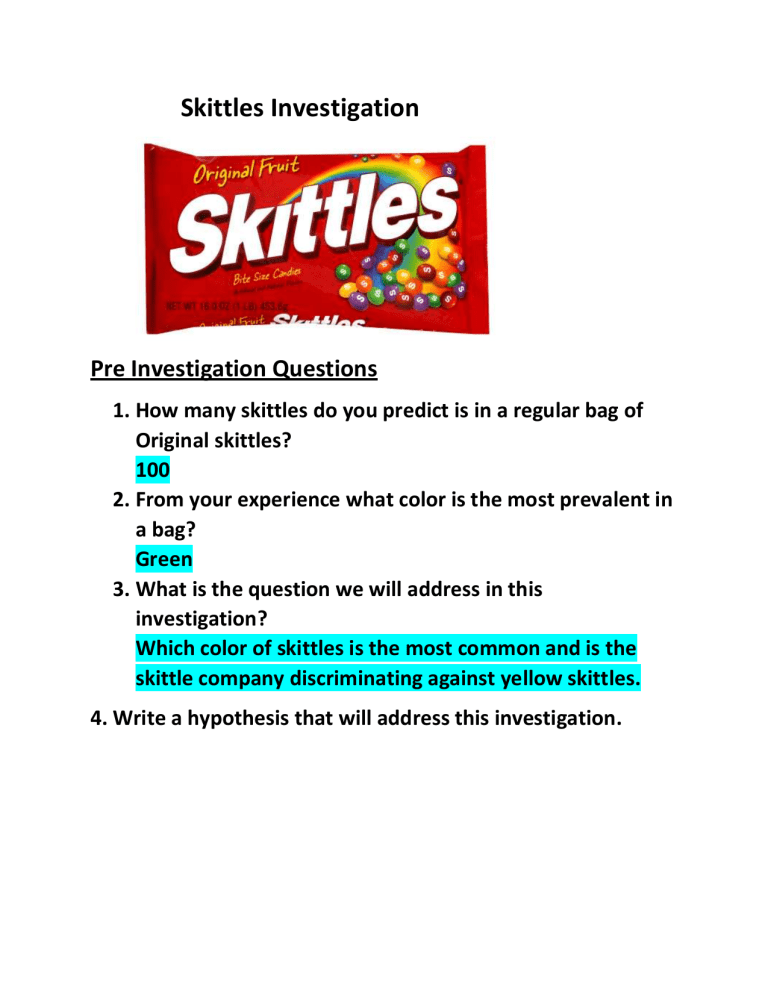
Skittles Investigation Pre Investigation Questions 1. How many skittles do you predict is in a regular bag of Original skittles? 100 2. From your experience what color is the most prevalent in a bag? Green 3. What is the question we will address in this investigation? Which color of skittles is the most common and is the skittle company discriminating against yellow skittles. 4. Write a hypothesis that will address this investigation. Individual Investigation Data Record your data from your personal bag of skittles Color of skittles # of skittles Red Orange Yellow Green Purple 19 19 29 19 16 Yellow 19 15 15 24 12 16 17 52 165 Green 19 15 20 12 10 18 22 49 135 Purple 26 10 21 16 10 27 19 42 172 Class Investigation Data Bag # 1 2 3 4 5 6 7 8 Total 10 11 12 Red 17 5 19 19 11 24 22 48 165 Orange 18 12 24 12 14 23 25 30 158 Conclusion 1. What was your conclusion after looking at the class data? 165 158 165 135 172 2. I got the same amount of red and yellow skittles so the petition or revolution is fake and pointless, if anything we got to fight for more greens. 3. 2. How would it affect the results if you also entered data from other types of skittles other than original? It would change our comparison amounts for each bag so we would get a different sample size and for a science experiment it is important that only 1 thing changes and in this case it was the bag of skittles we needed the same type of bag. 3. Why was it important to not use fun size skittles? Because then we would get a smaller comparison size which could mess with our results. 4. How did your predictions compare to what is actually found inside a bag of skittles? My prediction was the opposite of our results I said green would be the most common in my prediction but it was actually the most common. 5. What would your response letter to the CEO of the Skittles company look like? To CEO After a through scientific investigation we have founded that your company does not produce less yellow skittles than other types of skittles and we thank you for your cooperation. 6. How does this investigation respond to others who feel that all “true” scientists have to work in a lab and use chemicals. This investigation shows that science isnt chemicals and making magic and potions its discovery and new things that we find out its not just chemicals and technology its everything. 7. Describe a career in science that does not involve a lab and chemicals. Your description should not be less than one paragraph. A career in science that does not involve chemicals directly is a marine biologist they study animals in the water. And not only study but also help them live and also take care of animals that may have been affected by human activity.
